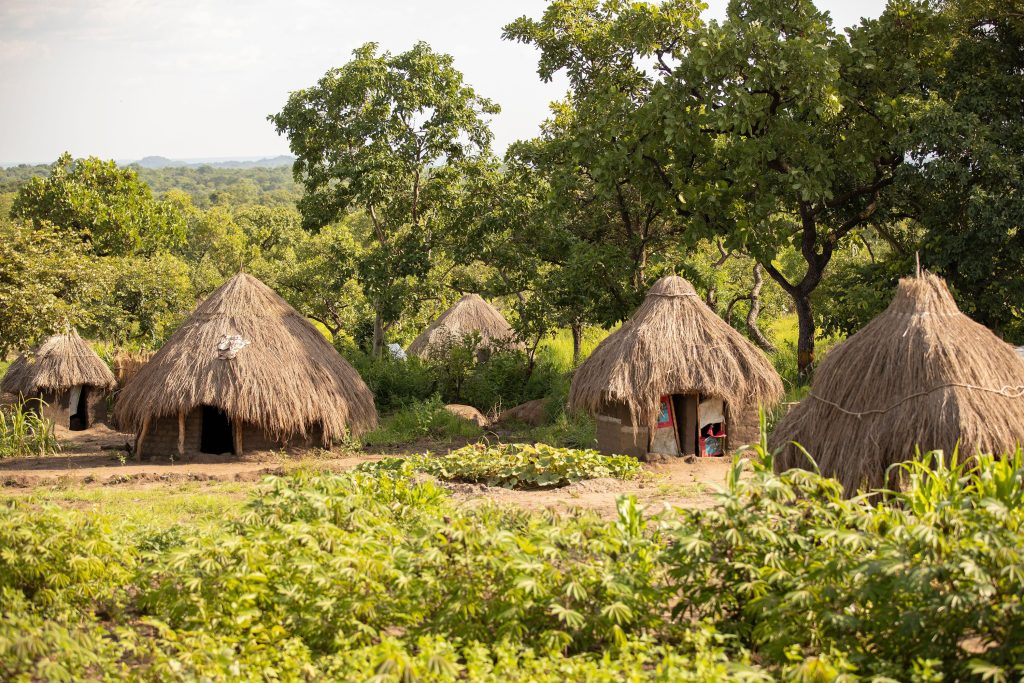Lightning kills 13 children at Uganda refugee camp
3 min read
A devastating lightning strike at a refugee camp in Uganda has resulted in the deaths of 13 children and one adult, according to police reports. The tragedy unfolded on Saturday evening while the victims were attending a church service at the Palabek Refugee Settlement in the northwestern region of the country. In addition to the fatalities, 34 other individuals sustained injuries during the incident.
The Palabek Refugee Settlement, which currently houses over 80,000 refugees and asylum seekers—many of whom are fleeing conflict in neighboring South Sudan—has recently experienced heavy rainfall accompanied by thunderstorms and lightning. Kituuma Rusoke, the spokesperson for Uganda Police, confirmed to BBC News that the adult victim was a 21-year-old man. However, specific ages for the deceased children were not disclosed.
This tragic event highlights the ongoing dangers faced by communities living in refugee settlements, particularly during severe weather conditions. The occurrence of lightning strikes is not uncommon in the region, especially during the rainy season, which has been particularly intense this year.
In a somber reflection on the incident, Rusoke expressed condolences to the families affected and emphasized the need for increased awareness regarding safety during thunderstorms. “It’s crucial that communities are educated on the dangers of lightning and how to seek shelter during storms,” he stated.
The Palabek Refugee Settlement is one of several facilities in Uganda that provide refuge to those fleeing violence and instability. Uganda has been recognized for its progressive policies towards refugees, offering them opportunities for education, healthcare, and livelihood support. Nevertheless, the challenges of living in a refugee camp can be overwhelming, especially during adverse weather conditions.
This tragedy is not an isolated incident. Just four years ago, a lightning strike in the city of Arua, also located in northwestern Uganda, killed 10 children who were taking a break from playing football. Such incidents underscore the persistent risks that vulnerable populations face, particularly in areas prone to severe weather.
As communities come to terms with the aftermath of the lightning strike in Palabek, the focus is likely to shift towards improving safety measures and emergency response strategies. Local authorities and humanitarian organizations may need to collaborate on initiatives aimed at educating residents about the dangers of lightning and the importance of seeking shelter during storms.
The Ugandan government, along with international partners, has been active in providing assistance to refugees and improving living conditions within settlements. However, the need for comprehensive disaster preparedness plans remains critical, especially as climate change continues to impact weather patterns globally.
The loss of young lives in this incident serves as a painful reminder of the vulnerabilities that exist within refugee communities. With many children already facing significant hardships due to displacement, such tragedies can have lasting emotional and psychological effects on families and the broader community.
As the investigation into the circumstances surrounding the lightning strike continues, support services will likely be mobilized to assist those affected, both physically and emotionally. Psychological support for survivors and the families of the victims will be essential in helping the community heal from this profound loss.
In the wake of this tragedy, it is hoped that greater attention will be paid to the safety and well-being of refugees in Uganda, particularly regarding their protection from natural disasters. The international community’s response and support will be crucial in ensuring that the Palabek Refugee Settlement and similar facilities can better safeguard their residents against the unpredictable forces of nature.
In summary, the lightning strike at the Palabek Refugee Settlement has resulted in a heart-wrenching loss for the community, particularly among families who have already endured the challenges of displacement. As the community mourns, there is a critical need for improved safety measures and heightened awareness about the risks associated with severe weather, ensuring that such tragedies are prevented in the future.






